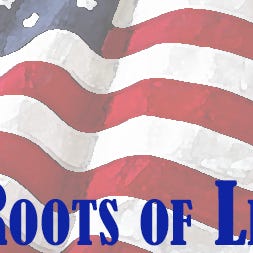Information Control
Today's discussion: Two cultural phenomena, one punch line.
Yeah, yeah, I gave the punch line away with the title, but this is a political blog, not a stand up comic's set, so just roll with me here.
First, Musk and Twitter. If you're like a friend of mine, you're already tired of the story, but, again, bear with me.
Contemplate this snippet, from Mika Brzenziski of MSNBC, that's making the social media rounds right now:
He's trying to undermine the media, trying to make up his own facts, and it could be that unemployment and the economy worsens, that he could have undermined the messaging so much that he could actually control exactly what people think. And that is the... that is our job.
"That is our job."


The clip, some may be disappointed to hear, is actually from 2017, about Trump, so the tweet is a lie. Don't fret, though, Mika has similar misgivings about Musk, calling his Twitter aspiration a "very dangerous precedent." I wonder how she felt about Jeff Bezos buying the Washington Post (no, I don't - it's a near-certainty she held no similar misgivings).
That Brzenziski's Kinsley gaffe was about Trump rather than Musk is largely irrelevant. The affirmation is what we all know: the histrionics about Musk’s move on Twitter are about information control.
Apologists might assert that she phrased her thoughts poorly, that the gaffe doesn't reflect the journalist's actual belief or intent, but let's be honest. The Internet has been quite the bane for our "journalists," even as it has created and advanced so many of their careers. They are no longer the gatekeepers of information, the sole curators of public opinion, or the final arbiters of what we should accept as true, and it makes them apoplectic. That their favorite policy-skewing, Overton-window-expanding, cancel-weaponized social media platform might suddenly be less curated, less throttled, and less favorably managed is the stuff of their nightmares. A sorta-capitalistic, un-woke richest man in the world threatening to make it more about free speech has some of them staring longingly over cliffs and out open high rise windows.
Second, the tale of Helena Kerschner, a 23 year old woman who, starting at about age 15, sought to resolve her internal conflicts, self-doubt, and poor body image by transitioning to male. Her autobiographical treatise is a long read, about 14,000 words, but I really do encourage you to bookmark it and peruse the whole thing with an inquisitive and open mind. The insights are too numerous to tally. She was also recently interviewed, here.
I’ll get this out of the way: There are legitimately transgender people. I should not have to write that, but since I’m about to argue that not all who start down that path are truly thus, it’s a preemptive caveat. Nothing I write here denies that. The argument that follows is that not everyone who asks the question, “Am I trans?” ends with the answer, “Yes, I am.”
There is, unfortunately (for the transgendered as well as for society overall) a massive cultural impetus that encourages identifying as trans on the slightest inclination, no matter how momentary, and presents it as the answer to young people who are struggling to sort out feelings and lives in adolescence, who feel they don't "fit in."
The explosive (by one estimate, 4000%) growth in the number of those identifying as transgender is almost solely among the young, with no commensurate increase among older people. Red flag. As Kershner notes, this is driven by a culture and community that's a one-way street, where transitioning is the answer to all the doubts, discomfort, questions, awkwardness, anxieties, esteem, body image, familial stress, mental health problems, and so forth. The message is 'all that troubles you is your body's fault, and if you change your body, all these problems will go away.'
That culture also demands that, once one has started down the trans path, the journey be completed. There appears to be little support for those who ultimately decide they are not trans. The opposite, in fact: criticism, aggression, shunning, accusations of betrayal... in short, exactly the sort of social pressure that those who think they might be transgender hope to remedy. The moment someone suggests he or she might be, the community, from peers to social workers to medical professionals, 'affirm' the transition, sometimes aggressively, and we are told to do anything less is transphobic.
In addition, as Helena's tale reveals, access to chemical treatments is provided with only the most cursory assessments. While the libertarian view is that prohibitions against such access are immoral (for adults), it is equally immoral for a professional to abandon the responsibility that comes with the job in favor of a preferred outcome. In any event minors should not, other than in extreme cases of neglect or worse, be managed without their parents' knowledge and consent (daily, there are tales of teachers and schools that hide kids’ notions of transitioning from their parents).
And, indeed, the preferred (more than preferred) outcome in the community and the culture is to transition.
See that "Q" in LGBTQIA+? In some iterations, it stands for 'queer,' but queer, per Planned Parenthood, "describes sexual and gender identities other than straight and cisgender." So, it's now also understood to mean "questioning."
Thing is, once the questioner goes public, the only permitted response is "yes, yes you are!" There is only one correct answer to the question, and a 'return' to a cishet (cisgender, heterosexual) identity is treated by some as a betrayal of the community that can only be the result of transphobia and ignorance.
Kerschner was terribly dis-served by that community, as her saga reveals. She was allowed to self-prescribe a testosterone regimen four times the normal dose, and she went through years of chemically induced mental anguish with nary a single professional suggesting it might be a problem. When she finally had her "a-ha moment," and started to detransition, she embarked on an information-gathering expedition that revealed the extent of that disservice.
I was angry about having this kind of information kept from me by the community, which I now understood exhibits information control dynamics similar to that of cults or extreme religious sects.
There's that punch line again.
Throughout her arc, the word "transphobic" was casually lobbed at anyone who didn't affirm her, without question, as a trans person. The accusation of bigotry is a powerful muzzler not only of dissent, but of any sort of critical thinking.
As was the reaction to her detransitioning.
A movement that supports people without preference as to outcome is honest. One that elevates itself above its constituents and subordinates their needs in favor of an agenda is not.
If one has to resort to information control to achieve an end, that end should be at the top of the list of things to be questioned and treated with skepticism. Whether it be cultural acceptance of people outside the "traditional" binary gender duality, or progressive sociopolitical ideology, withholding of the full range of facts, opinions, conclusions, and viewpoints from the public should elicit suspicion and distrust, no matter how noble-sounding the stated goal is. If it is truly worthy, it'll stand up to deep scrutiny.
There are countless other examples, ironically in an era dubbed the "information age," of this pursuit of information control. Pick a hot issue of the day (global warming, pandemic, the Ukraine war, inflation, immigration, education), and I guarantee you will find information curators who rage at any attempt to subvert their narratives.
The great shame is that the excesses of the trans-activist community are not only harming teenage girls, they will actually work against the acceptance of genuinely transgender people. As well, the "we know better" clampdown by Twitter's overlords will continue to undermine the public trust and society's institutions.
If you enjoy The Roots of Liberty, please subscribe (if you have already, thank you!), and please recommend the blog to your friends! While I share it as much as I can on social media, subscribing ensures you won't miss a post.
If you really like The Roots of Liberty and want to help keep it rolling, please consider becoming a paying subscriber here at Substack, or at a lighter level as contributor to the blog via Patreon.
Thank you for your support!
Yours in liberty,
Peter.




My personal philosophy is that eventually the people figure everything out. Back in the 80s, Rush Limbaugh emerged as an alternative to the print and broadcast media because people like my parents figured out they were only getting one side from the network news - a "side" with an agenda. The same is true today with the major social media platforms - people "figured out" their access to information was being throttled and hidden, so they moved to alternative media.
But this is FAR different for children, who only go through their youth once and are naïve and impressionable throughout that period. By the time they "figure out" that they've been deliberately misled about what is "normal", and at an age when they were incapable of understanding the lifetime impacts, it's too late: they're entering adulthood with a youth that was misspent chasing a mirage of empathy and understanding, which was only a cloak over naked political aggression. Children don't "need" to be sexualized, exposed to sexuality, informed or misinformed about sex, sexual identity or sexual preference - they need to be protected in a hermetically sealed cocoon, especially from strangers, during their youthful "questioning" years. If a question WERE to arise during these impressionable years - which is highly unlikely, absent the power of suggestion and peer pressure - then those questions would be the purview of parents, the pastor and the family doctor, not teachers, coaches, scout leaders or others outside the parents' control. Unfortunately we now have a generation of overly sexualized children who will experience God only knows what mental health disorders as a result.
“… the "we know better" clampdown by Twitter's overlords will continue to undermine the public trust and society's institutions.” Indubitably!